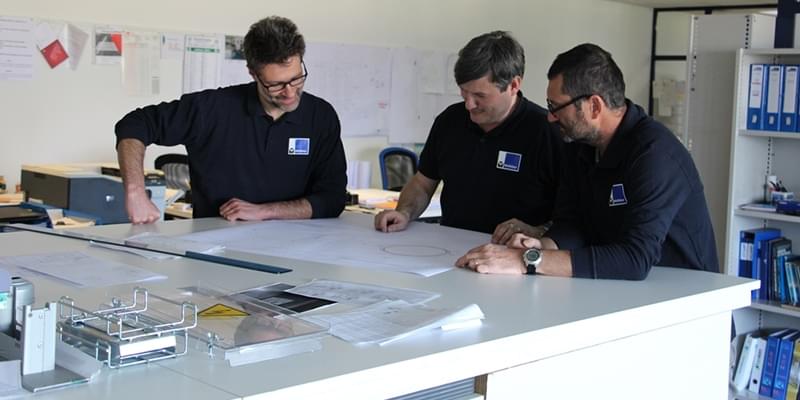Co-designing when working sheet metal saves time and resources

In addition to offering cold working of sheet metal for third parties, Minifaber also has an in-house technical department that follows its own clients through the delicate design phase, together evaluating the most suitable materials, the best moulds, and the ideal production products, working deadlines, and, of course, costs, to optimise all work phases. This results in a remarkable economy of resources, all the while maintaining the high quality of manufactured products. This is why the co-design offered by Minifaber is a unique service:
A team of competent, skilled technicians
The strength of Minifaber's technical department lies, first and foremost, in the know-how and skills of its staff, whose members can create technical drawings to produce metal parts, even starting only from an idea provided by the client. In addition, the entire philosophy of Minifaber is founded on constant investments on human resources, which is why in this technical office professionalism is king. Thanks to continuous training, the experience of each technician grows year by year, allowing the company to offer its own clients a highly skilled team, always up to date with the latest news in the world of sheet metal working.
Automatic software for maximum precision
In addition to experience in cold metal working, Minifaber also invests in technology and innovation, and has increased its already very modern stock of machines in the production plants by adding automatic design software, indispensable to simulate each single part with maximum accuracy and evaluate their performance, characteristics and weak spots, before starting production.
Quick prototyping technologies for preliminary tests
Once all components are designed, Minifaber uses quick prototyping technologies and in-house sheet mould manufacturing to give life to prototypes in a very short time and with low costs, making it possible to carry out all necessary technical tests before starting mass production. This means detecting any problem that may arise on a preventive basis and improving both templates and final products without wasting time or resources in mass processes of sheet metal working which can end up being a waste of investment if the design is faulty.

